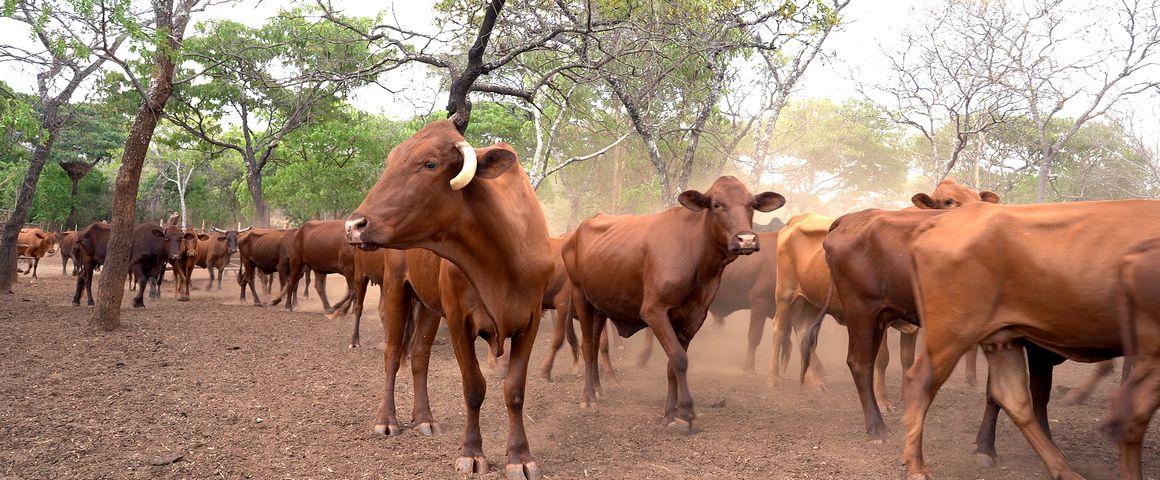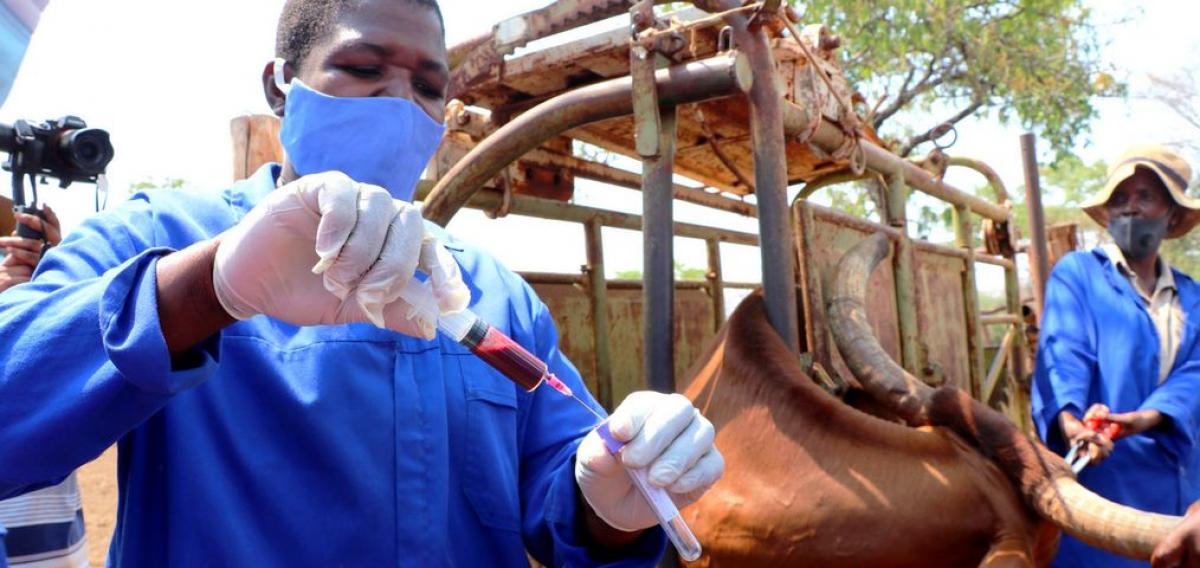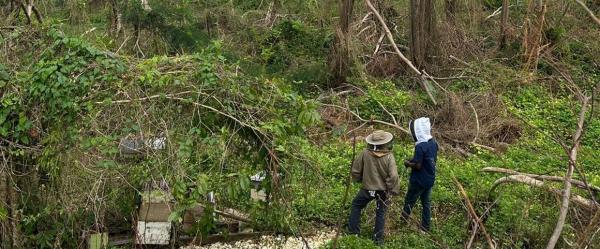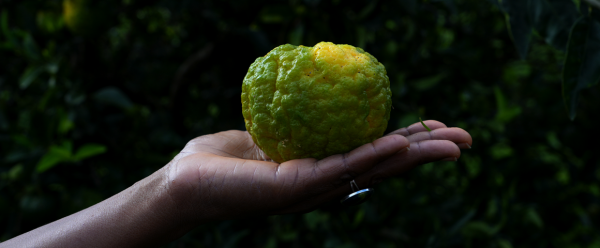Science at work 14 January 2026
- Home
- CIRAD news
- News
- LIPS-Zim project - more resilient livestock farms in Zimbabwe
More productive and resilient livestock farms in Zimbabwe through the LIPS-Zim project

Cattle in Bindura, Zimbabwe © C. Chitate
The Livestock production systems in Zimbabwe (LIPS-Zim) project was officially launched in March this year. “We are currently finalising the recruitment of students, and field data collection should begin in May ”, says Mathieu Bourgarel, coordinator of the project for CIRAD. With funding from the European Union in the framework of the DeSIRA initiative, this four-year research and development project will bring together a consortium of four partners: CIRAD, ILRI, CIMMYT and the University of Zimbabwe.
Like all DeSIRA projects, LIPS-Zim is aimed at improving the productivity and climate resilience of food systems. Here, cattle, goat and poultry farms in nine districts in Zimbabwe are concerned. These areas, which are among the driest in the country, are characterised by numerous family farming systems made up of small herds. “Climate change is increasing the severity of droughts in these areas, which generates problems in agricultural production ”, continues Mathieu Bourgarel. During the hot dry season, herders move to find water and forage, in the national parks or protected areas. Livestock consequently comes into contact with wild animals, and diseases may then be transmitted between them.
Six diseases under surveillance
One of the objectives of the project – in which CIRAD is actively involved – is to strengthen the surveillance and control of animal diseases in order to increase livestock productivity. Six priority diseases have been identified with farmers: animal trypanosomiasis (transmitted by the tsetse fly), East Coast fever (transmitted by ticks), anthrax, peste des petits ruminants, blackleg and Newcastle disease.
“10 000 diagnostic tests will be carried out over the course of the project: these will enable us to study the prevalence of these diseases, to identify and map high-risk areas and to implement appropriate public health policies ”, says Mathieu Bourgarel.
The goal of the LIPS-Zim project is to develop a rapid and effective surveillance system. “During the avian influenza epidemic of 2016, the diagnostic tests were analysed in South Africa and it was three months before the results were known! ”, says Mathieu Bourgarel. “It is essential that we shorten these delays in order to rapidly implement control actions and to thereby reduce livestock mortality ”. To that end, the LIPS-Zim project will support two other projects coordinated by CIRAD’s ASTRE unit, CAZCOM and PACMAN, whose shared goal is to provide the country with a platform for cutting-edge biotechnologies, based at the University of Zimbabwe.
“These three complementary projects will strengthen the capacities of analytical laboratories, provide technical and academic training, conduct surveillance and control studies, and manage the transmission of information ”, he continues. “This will make Zimbabwe more autonomous in terms of the control of animal diseases of economic importance ”.
Initial impacts expected by 2022
To ensure the surveillance system functions correctly, in accordance with the country, the approach will be participatory. “The technical solutions exist, but are not always used by the communities concerned ”, says Mathieu Bourgarel. “Our objective is to create an innovation suited to the needs of local people, their resources and their lifestyles, to ensure they take ownership of it ”. The first concrete results for farmers – a reduction in livestock mortality – are expected by 2022.
CIRAD contributes more modestly to the other major component of the project: improving the climate resilience of production systems. The effects of climate change are already being felt, as explained by Mathieu Bourgarel: “Over the last 20 years, rainfall has become less and less predictable, and the productivity of family farming systems has been altered ”. Thanks to field experiments and numerical models, CIRAD’s Agroecology and sustainable intensification of annual crops (AIDA) research unit will strive to develop more effective and resilient fodder production systems. “By also working on the economy around these livestock production systems, the project will ultimately help to significantly increase farmers’ income ”, he concludes.
The DeSIRA initiative
The DeSIRA initiative (Development Smart Innovation through Research in Agriculture) was launched at the Paris One Planet Summit in December 2017. It is headed by the European Commission Directorate General for International Partnerships (DG INTPA), in association with the Bill & Melinda Gates Foundation. Its aim is to boost innovation in agriculture and changes in food systems in partner countries to make them more resilient to the effects of climate change. It seeks to strengthen research partnerships (Europe and global South), to promote science in partnership with development players, and to focus on impact-oriented research.




























